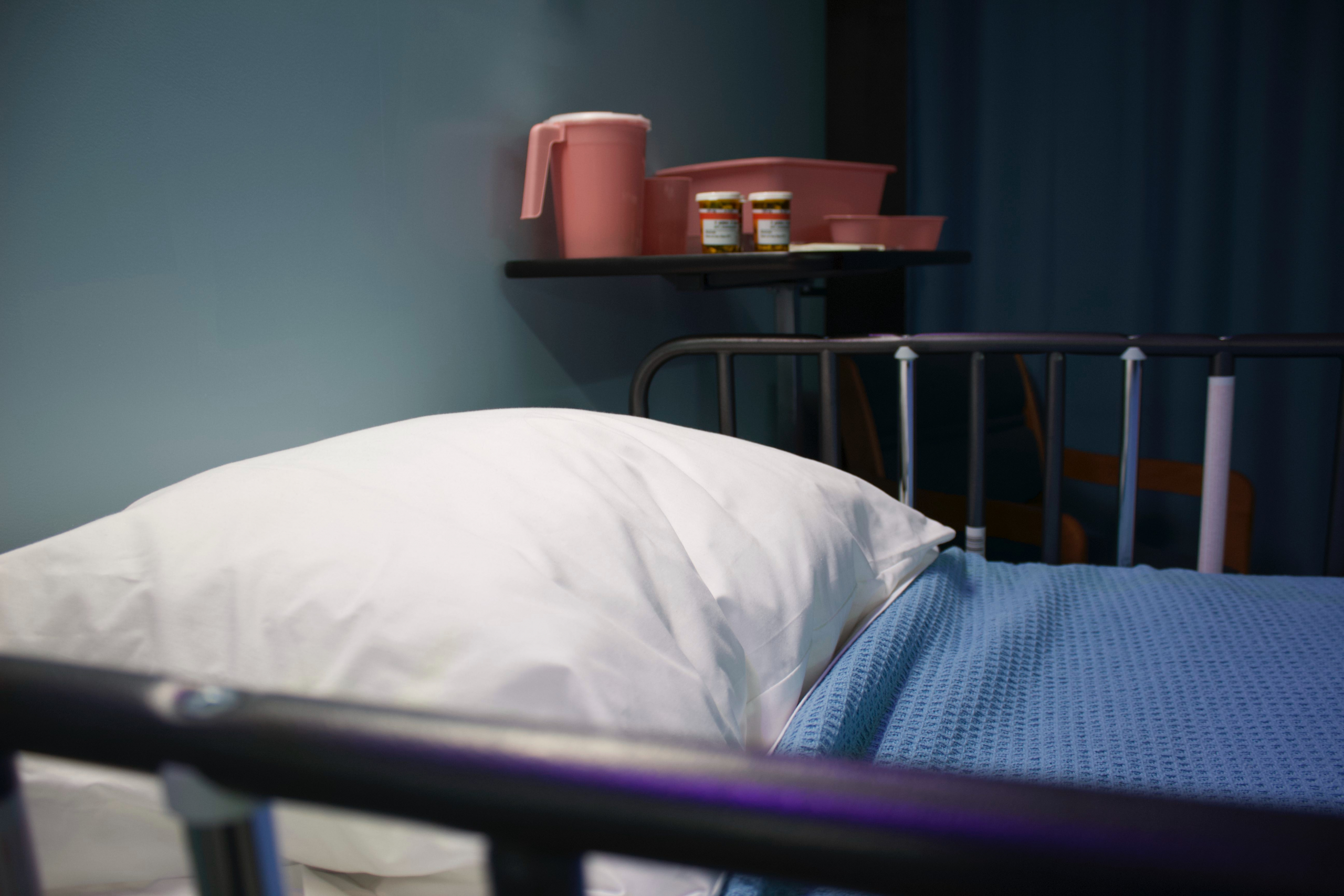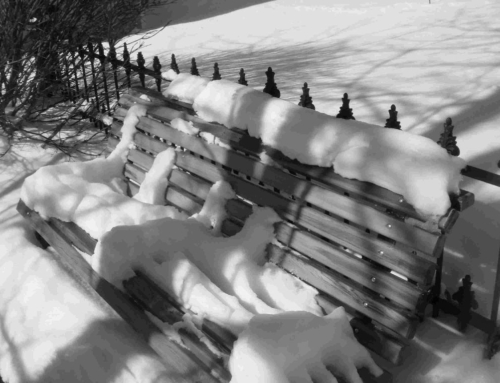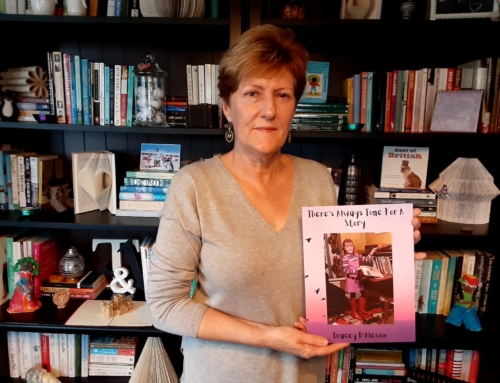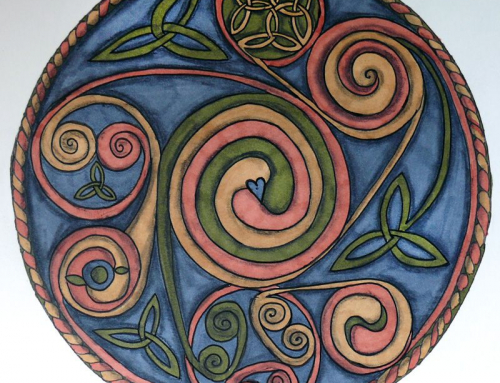Written by: Hannah Song
Hospice palliative care volunteers are highly valued members of many hospice palliative care teams. They dedicate their time to provide support to members of our community who are dying in-home, hospice and hospital settings.
In writing this post, I had the privilege of interviewing two hospice palliative care volunteers. Volunteer Y, who is in her mid-60s, has been volunteering in the community setting for about a decade. Volunteer L, in his early 20s, volunteers in the hospital setting. I learn about their experiences in this role including some challenges, their self-care strategies and the value they see in spending time with dying individuals.
Please note that interviews have been anonymized and details have been changed to protect the identities of the volunteers and their clients and patients.
Read Comments from Volunteers
Question: How has the pandemic impacted your work as a hospice palliative care volunteer?
Volunteer Y: “I started with my client last summer and was seeing him 30 hours a month, which is considered quite a bit. . . . After the pandemic started, I was able to stay in touch with him by phone or text – he’s young so technical [devices] and social media made it easier but it was a bit of a . . . shock for both of us. With some people, you build a friendship because you’re so close to what they’re going through and it felt like I was being punished even though it wasn’t my fault and he didn’t see it that way. He understood the policy and we had to be careful because we didn’t understand what we were dealing with. . . .
I think it helped that we got to build a connection beforehand because I think it would be really hard to start building a connection over the phone and if that’s how it’s going to be going forward, I have to question if I have the skill set to do that. . . . For the client, they’re not getting the support and help that they’re used to getting, at least from me because my rule is I’ll do anything you want as long as it’s legal. I’ll always respect whatever they want. . . .
Within the next week or so he will die. It’ll be hard to figure out how to grieve. We all have our own ways of coping and we’ll have to figure out new ways. I’m maneuvering through it right now, maybe that’s part of some anxiety. I know I’m resilient and I know I’ll get through it because I’ve done it before.”
Question: I understand that being a hospice palliative care volunteer can be emotionally and spiritually difficult. What coping strategies do you use?
Volunteer Y: “ Typically what I do after I’ve been with a client, and I know which day it’s going to be, I never schedule anything else that day. It doesn’t mean I won’t go to the movies or I won’t go to dinner with someone . . . but I don’t commit to anything. That’s kind of my rule.
Typically, I’d only have one client. Many of my clients have been long term. Years ago when I started doing this work, I made a promise to myself that . . . I would always ask myself the question, were you present for every moment. . . . I want to be able to always answer yes to that so that’s why I always try to only have one client although sometimes I’ve juggled a couple for one reason or another. . . .
If I can use the example of my client at the moment, many months later, death is relatively imminent. . . . Even if I’m the perfect person for the next client, I never take another one right away. I don’t give any specific amount of time that I’ll take off.
I just allow myself to heal because I think that if I’m sort of half grieving and dealing with the situation that I’ve just lived though, I won’t be present for the next person or I won’t be quite myself. I try to come to the next client relatively, I’ll say, fresh. So for this particular client I’ve already told myself I will not take on another client until the end of the year and then I’ll evaluate when January comes around. . . . I’m good at allowing myself to feel what I feel and self-care is really important.”
Volunteer L: “Well, . . . I’ve had patients passing away during my volunteering, literally like two days after I met with them. . . . I think it’s a very natural process because you know, we’re all human and we have feelings and while you’re talking to these patients you grow attached to them. You learn their life stories, you learn about their perspectives and you just get such meaningful experiences. It makes complete sense, it’s very natural thing to become emotionally affected when they pass away. So just finding someone to talk to or whatever it is that works for you. Maybe writing it down in a journal. It’s always okay to take a break from palliative care if it’s getting to you. I think that’s important.”
Question: What have you gained from your experience as a volunteer?
Volunteer Y: “You do it professionally through the organization but because of what I do as a volunteer, you then become almost like a resource person for other people outside [of the organization]. . . . I coached two people who had a person who was dying. I coached them over the phone. . . . They were friends so it’s a little different than a stranger.
The way I summarize it is, because some of my friends really think I’m crazy doing this work, right? It’s almost like buying a heartache. . . . But I always felt that someone who’s dying shouldn’t die alone if they don’t want to. That feeling of someone’s nearby if you want them to be. There’s a certain presence there. I always thought that was really important and the reward for me at the end of the day, is that, the best way I can summarize it and I haven’t been able to do that till very recently is that, I tell people that the work is . . . difficult and sad and punishing, so that’s the one extreme.
The other extreme is that the other things in my life, you know like small happy moments like having coffee with a friend and having a laugh and just enjoying nature, . . . just knowing that I can be physically active and do things at [my age]- I find that the other parts of my life are much more vivid. . . . So I have the two extremes. So because of the extreme of sadness and death and so forth, the life part of my life, the alive part is extreme as well. . . .
I might be like that by nature but I also learned it from my husband. My husband died . . . years ago. I was a [young] widow and he had a very nasty and short illness . . . and he always used to say, live a little. And if you’d say, oh we should do this weekend then he’d say well, why aren’t we doing that tonight? His attitude was, you have to live life in a hurry and when you look at what happened to him, he died [young], you go, well maybe he knew something that we didn’t know. . . . So maybe I learned a little of that from him, that sort of savouring, getting excited about things. . . . And I think that’s kind of, my work has kind of made that even greater. . . .
I’m not a practicing Buddhist but I’m part of a community online. . .that meditates together. . . So I have a very sort of life and death kind of go hand in hand kind of thinking that’s been emphasized by that. . . .Life is better because you’re always aware that they go together. Because at one point I felt like, am I preoccupied with death or, you know what I mean? But no, I think it’s that fragility that impermanence that you become very aware of.”
Volunteer L: “I think just hearing about [the patients’] experiences just opened new doors for me. They tell you about their entire lives and much of it’s their career but there’s also. . .things like family, hobbies, travelling was a big one, interests and sports. . . it just makes you feel like-they just have so much to offer. They have so many experiences under their belt and they provide you with a bigger picture of how to look at things. I’m [young] and I look at things a certain way. When I see something that will take one year or two years, I think, oh my gosh, that’s such a long time but you know, at their stage of life, five years is just a short interval. It makes you think about time a little differently and makes you think more about- just to take advantage of your time right now and not to worry so much about everything else.”
Question: As a hospice palliative care volunteer, how do you view intergenerational experiences in the hospice/palliative care setting?
Volunteer Y: “I’m [in my 60s] and. . ., my youngest client is the client that I have now, he’s 50. Uh, the oldest client I’ve had was 90 and I’ve had some my age. I think at the beginning, when I was working with a 90-year-old, I’m thinking, we’re like 30 years apart. What the heck are we going to talk about? This is going to be punishing. But we hit it off like . . . friends . . . And so, it just explains that a connection is a connection right? . . .
Literally, I think when someone’s dying, I don’t think it matters if you’re 50 or you’re 90. I think the need to be accompanied and tell your story is the same. Maybe a 90 year old is saying it from a different point of view because they’ve had a long life and they see their death as sort of a step they know they’re entering. For someone quite young it’s all the things that you’re not going to live through because it’s going to be cut short. But I think there’s still the need.
Everyone I’ve been with has talked about their childhood, . . . their upbringing, their fear, . . . their love life. . . . So I don’t see a huge difference surprisingly and maybe it’s because I’ve had the experience of you know having a few people much older than me and it’s clicked . . . It can be quite, and I’ll use the term entertaining, but I don’t mean that in a trivial way. People literally tell their stories and you know, truth is stranger than fiction. . . .
So I think the need is similar, the fears are also similar, you know. The fears about . . . pain in the end and I think maybe the thing that surprised me the most is how grateful these people are. . . . A few years ago I had a client who had ALS and it progressed very very quickly . . .
before he died, he could barely speak but he had rehearsed what he was going to tell me before I left . . . and it was so touching. . . . [R]eally he needed to say thank you and I learned you need to let people do that whereas before I would say, no, no it’s no big deal. . . .
So yeah, so I don’t find there’s a huge difference between the generations other than, their stories are longer if they’re older and you know when they’re younger it’s like they’re feeling cheated. And there’s loneliness on both sides. When you’re young and you’re dying it’s, your friends are – death is so far from their thinking as far as the future is concerned so they feel very, I’ll say lonely, but when they’re elderly a lot of their friends have already died or are quite ill as well so they also feel lonely.
So I think, I said earlier that one of the reasons I’m doing this work is because I think people shouldn’t die alone if they don’t want to, . . . what I notice as a common thread is that people are dying and they’re lonely which is so – it breaks your heart right?”
Volunteer L: “As with any relationship, you just have to be genuine. As long as you care and you’re genuine, maintain your manners and [are] aware of certain things, then the relationships will turn out fine. Obviously, there are particular challenges with interacting with someone who is so much older than you. . . . Like, how they perceive what you say and you have to be aware that you come from very different backgrounds.
The patients I talk to are usually in their 70s and 80s and they were born, . . . they were baby boomers, they were born right after World War II, so very different circumstances. They have different ideas compared to what you have and it’s very important to be sensitive of those topics when you’re talking about them.
There’s also the obvious fact that they’re here in palliative care or hospice for a reason and you know, people view death differently at different stages of their lives. . . . [S]ometimes the patient brings it up and you have to gauge what their state is and engage in the conversation carefully. . . .
My sister also volunteered for palliative care. . . . Her patient was- they had a really good relationship, he . . . used to do skydiving and . . . under his influence my sister actually tried paragliding and I think that really had an effect on the patient she was working with because,
and these are his words, he felt like he was making a difference in the young people’s lives. So that could be some value to working with someone young, feeling like you’re leaving a legacy.”
“I’m the youngest person on our palliative volunteer team. The other members of my team are well in their 40s, 50s or even 60s. So they’re more like friends for the patients who aren’t that much younger than [them], but for myself, it must be a bit difficult. But as long as you present yourself as genuine and provide good company, it’s not that different at all.”
Question: Any Other Comments?
Volunteer Y: “I think that those of us who do this are considered a little bit odd but also needed you know? . . . I mean, the work I think, surprisingly, can be joyous. I mean, my client and I sat in waiting rooms and stuff like that and like laughing so much. You’d think . . . , is somebody dying there? . . . but it’s possible to go through difficult times and still enjoy some things. You know what I mean? And that was kind of surprising as well too is that people want to have fun and people want to laugh but they also want to be sad, . . . .”
Volunteer L: “I started palliative care without knowing what it was. I just thought that, versus other forms of hospital volunteering, palliative care is a form of volunteering that actually brings you with the patient. You actually get to interact with the patient . . . . After doing it, I think as long as you- if you like stories and you like talking to people, if you enjoy meaningful interactions and meaningful conversations, then you should definitely consider volunteering with palliative care. . . . I’ve heard so much about what these people did in their lives and it [has] just totally shed new light on how I view certain things.”
______________________________________________________________________________________________________________
Thank you to the volunteers who were interviewed and shared their insights and powerful experiences.





